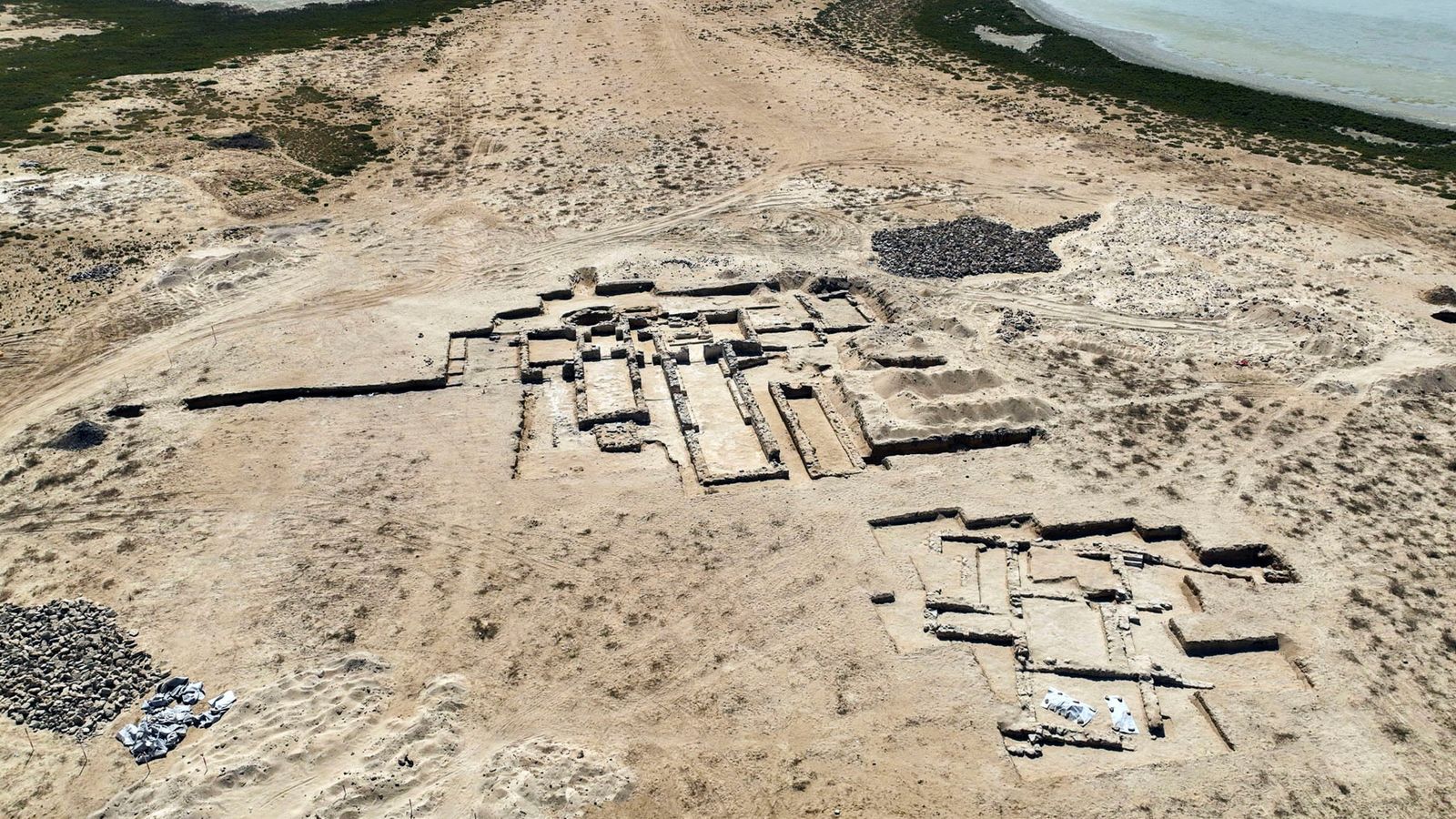Archaeologists have discovered an ancient Christian monastery on an island off the coast of the United Arab Emirates.
The site, on Siniyah Island, part of the sand-dune sheikhdom of Umm Al Quwain, sheds new light on the history of early Christianity along the shores of the Persian Gulf.
It is thought the site may date as far back as to the years before Islam spread across the Arabian Peninsula.
Carbon dating of samples found in the monastery’s foundation date to between the early 6th to mid-7th century AD.
Although its roots go back further, scholars typically date the rise of Islam to the 7th century.
Announcing the find on Thursday, officials said the floor plan of the site suggests early Christian worshippers prayed within a single-aisle church.
Rooms within appear to hold a baptismal font, as well as an oven for baking bread or wafers for communion rites. A nave also likely held an altar and an installation for communion wine.
Buzz Lightyear film banned in 14 countries over lesbian kiss – but Disney refuses to cut it
Boris Johnson to travel to UAE as it names Sheikh Mohamed bin Zayed Al Nahyan as new president
UAE President Sheikh Khalifa bin Zayed Al Nahyan, immortalised in name of world’s tallest building, dies aged 73
Next to the monastery sits a second building with four rooms, likely around a courtyard – possibly the home of an abbot or even a bishop in the early church.
It marks the second such monastery found in the Emirates, dating back as many as 1,400 years – long before its desert expanses gave birth to a thriving oil industry that led to a unified nation, home to the high-rise towers of Abu Dhabi and Dubai.
In the early 1990s, archaeologists discovered the first Christian monastery in the UAE, on Sir Bani Yas Island, today a nature reserve and site of luxury hotels off the coast of Abu Dhabi, near the Saudi border.
It similarly dates back to the same period as the new find in Umm Al Quwain.
Timothy Power, an associate professor of archaeology at the United Arab Emirates University who helped investigate the most recent find, described it as a “really fascinating discovery”.
The two monasteries became lost to history in the sands of time as scholars believe Christians slowly converted to Islam as that faith grew more prevalent in the region.






















